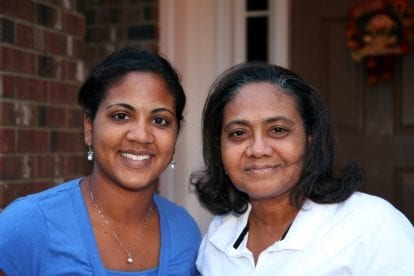
Family Therapy
At Bridges to Recovery, we understand that mental health disorders cast a wide net and impact not only the client, but also their loved ones. Watching a family member suffer can be a painful, sometimes disorienting experience and families may need help understanding what their loved one is going through, how to manage their own feelings, and how to be most helpful to their loved one. Research shows us that family support can be critical to recovery from virtually all mental health disorders, often dramatically decreasing relapse rates and hospitalizations. We offer family and couples support to all clients who are at a stage where they can benefit from this work. The ability to provide meaningful support and balanced relationships depends on having a clear picture of the illness and its effects on the client, managing interpersonal conflict, and establishing healthy ways of coping. We also know that family members often need support to handle the challenges these disorders present. Family and couples therapy can provide a safe, supportive environment in which to develop the insight and skills to begin to heal together.
Psychoeducation
Our empathetic therapists share their knowledge about the mental health disorder the client is suffering from and can answer any questions families may have in order to gain a better understanding of what their loved one is experiencing. The client can also participate in educating their family members about what they are going through. Demystifying mental health disorders and correcting misconceptions can make the disorder less intimidating, and more manageable. Isolation, shame, and self-blame are often lifted as families learn the facts about these illnesses and realize they are not alone.
Interpersonal Conflict
The disordered reactions many clients have to stressors can disrupt normal social functioning and damage relationships with loved ones. Meanwhile, family members may be at a loss for how to deal with the client’s psychological struggle and their own reactions in a healthy, productive way. Both clients and their families may have frustration, sadness, anger, resentment, and fears that need to be addressed in order to move forward.
At Bridges to Recovery, everyone’s feelings can be explored, you can discover ways to repair your relationships, and blame can be replaced with understanding. Talking about problems, feeling heard, and experiencing validation can provide relief for many people. Clients are able to use the skills they are learning in treatment to improve their ability to articulate and manage difficult emotions, and contribute to resolving relationship issues in newfound ways. Complex interpersonal issues benefit from the collaborative problem-solving opportunities afforded by therapy.
Improving Dynamics
Clients and families often have complicated relationship dynamics with behavior patterns that may hinder, rather than support, progress–despite the best of intentions. Family and couples therapy can help identify enabling, co-dependency, and over-involvement, and help you establish new outlooks and patterns of behavior. Loved ones often find therapy a useful place to establish boundaries to both protect themselves and their family member.
Meaningful Support and Life After Bridges to Recovery
Our goal is to set clients up for sustainable wellness that lasts long after their time at Bridges to Recovery. Family and couples therapy can be an ideal setting to create plans for life after treatment. Any obstacles to recovery that need to be removed from the home environment can be identified, and collective coping mechanisms can be developed. Family members may also create support plans to relieve their own stress and deal with their experiences in an appropriate manner. By fostering mutual understanding and respect, family and couples therapy can enhance the lives and relationships of everyone involved and help you all create effective, meaningful change.
Please contact us to discuss our family and couples counseling services and other ways Bridges to Recovery works to support clients and their families.





